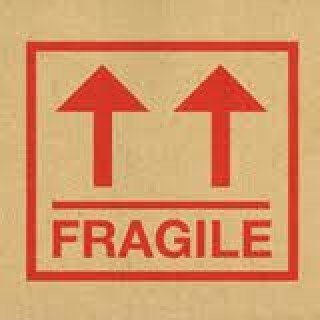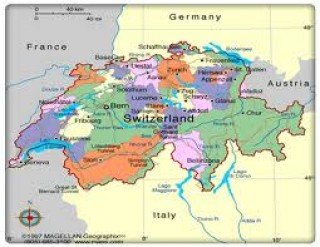by Seth Kaplan | Jul 3, 2012 | Africa, Economics and development, Middle East and North Africa, South Asia
 Many fragile states suffer from incoherent legal systems. Whereas in developed countries, one single system exists and is effectively enforced, in fragile states multiple systems work side-by-side, each weakly enforced, and often operating in contradiction with each other. Creating a unified and robust system of law is one of the biggest challenges these countries face.
Many fragile states suffer from incoherent legal systems. Whereas in developed countries, one single system exists and is effectively enforced, in fragile states multiple systems work side-by-side, each weakly enforced, and often operating in contradiction with each other. Creating a unified and robust system of law is one of the biggest challenges these countries face.
In most cases, this incoherence is a direct product of colonialism. One system, often with the greatest relevancy to local populations, has roots in the precolonial system of governance. It may have evolved a lot since then, but is still based on local circumstances and institutions. The state, itself a product of foreign rule, follows another system, based on Western legal tradition, imported from abroad. Neither is consistently or equitably implemented. Corruption distorts outcomes. Officials (whether those of the state or local leaders) lack training. Favoritism is common. (more…)
by Seth Kaplan | Jun 20, 2012 | Conflict and security, Economics and development

The term “fragile states” is much abused.
Policymakers, development researchers, politicians, and the media seem to think that every country experiencing a period of instability or bothered by certain governance problems is “fragile.” As a result, they group a wide range of countries experiencing vastly different types of problems together—creating a mass of confusion in the process.
Such thinking means that the term as currently used has very little value as an analytical tool. Instead it has become a catchall phrase to explain any situation that seems “fragile” even if the fragility is likely to be ephemeral. It also means that states that are structurally fragile but that have none of the most obvious symptoms of fragility (such as Syria before 2011) do not get considered as one. (more…)
by Seth Kaplan | May 21, 2012 | Conflict and security, Economics and development
 International efforts to help developing countries start with a mental model of how government should be structured. It is based on the most common European model of state building—a model initially developed by France but shared by most countries today. European history did, however, have another model, one that is not well remembered but that may be much more useful for fragile states—the Swiss model. (more…)
International efforts to help developing countries start with a mental model of how government should be structured. It is based on the most common European model of state building—a model initially developed by France but shared by most countries today. European history did, however, have another model, one that is not well remembered but that may be much more useful for fragile states—the Swiss model. (more…)
by Seth Kaplan | Apr 16, 2012 | Economics and development
With the appointment of the United Kingdom’s prime minister, David Cameron, as one of the chairs of a forthcoming UN committee tasked with establishing a new set of UN millennium development goals (the existing ones expire in 2015), debate on the issue is expected to heat up in the months ahead.
Many in the development field think the reduction of inequality in poor countries should be a high priority. But this shows a misunderstanding of the problems the poor face in these countries—and what steps must be taken to help them. (more…)
by Seth Kaplan | Apr 10, 2012 | Conflict and security, Economics and development
 A new book edited by Jeffrey Herbst, Terence McNamee, and Greg Mills discusses the most important problem in fragile states: weak social cohesion. It looks at “fragmented and weak states, made up of many nations and cutting across geographical, racial and religious boundaries” and explores why some countries with potential “fault lines” produce conflict while others are better at managing them.
A new book edited by Jeffrey Herbst, Terence McNamee, and Greg Mills discusses the most important problem in fragile states: weak social cohesion. It looks at “fragmented and weak states, made up of many nations and cutting across geographical, racial and religious boundaries” and explores why some countries with potential “fault lines” produce conflict while others are better at managing them.
More than a dozen authors contribute case studies on a broad range of countries including South Africa, Northern Ireland, Iraq, Ethiopia, Nigeria, Kenya, India and even Canada and seek solutions that can be transferred elsewhere.
Over and over again, they learn that “the nature of the fault lines was far more complicated than the simple headline assigned to a country.” In the Democratic Republic of the Congo, for instance, Pierre Englebert finds an extraordinarily complicated picture, with “multiple and overlapping local fissures, widely distributed across the country, which contribute to a fragmentation of identities and networks at the local level and increased polarization of social life.” Christopher Clapham writes that Ethiopia is “riven by conflicts along almost every fault line–ethnic, religious, ecological, class, ideological, political–many of which are broadly aligned . . . Conflicts within Ethiopia itself spread across state frontiers–especially those with its three most important neighbors.” (more…)
 Many fragile states suffer from incoherent legal systems. Whereas in developed countries, one single system exists and is effectively enforced, in fragile states multiple systems work side-by-side, each weakly enforced, and often operating in contradiction with each other. Creating a unified and robust system of law is one of the biggest challenges these countries face.
Many fragile states suffer from incoherent legal systems. Whereas in developed countries, one single system exists and is effectively enforced, in fragile states multiple systems work side-by-side, each weakly enforced, and often operating in contradiction with each other. Creating a unified and robust system of law is one of the biggest challenges these countries face.



